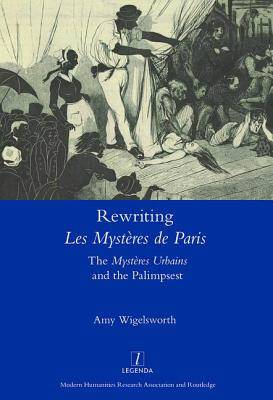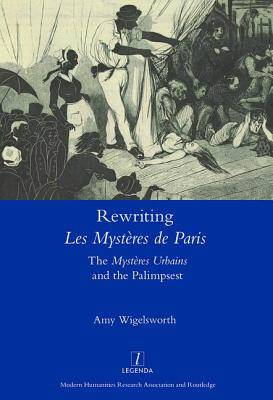
- Afhalen na 1 uur in een winkel met voorraad
- Gratis thuislevering in België vanaf € 30
- Ruim aanbod met 7 miljoen producten
- Afhalen na 1 uur in een winkel met voorraad
- Gratis thuislevering in België vanaf € 30
- Ruim aanbod met 7 miljoen producten
Zoeken
€ 112,45
+ 224 punten
Omschrijving
Key works of popular fiction are often rewritten to capitalize on their success. But what are the implications of this rewriting process? Such is the question addressed by this detailed study of several rewritings of Eugène Sue's Mystères de Paris (1842-43), produced in the latter half of the nineteenth century, in response to the phenomenal success of Sue's archetypal urban mystery. Pursuing a compelling analogy between city and text, and exploring the resonance of the palimpsest trope to both, Amy Wigelsworth argues that the mystères urbains are exemplary rewritings, which shed new light on contemporary reading and writing practices, and emerge as early avatars of a genre still widely consumed and enjoyed in the 21st century.
Specificaties
Betrokkenen
- Auteur(s):
- Uitgeverij:
Inhoud
- Aantal bladzijden:
- 244
- Taal:
- Engels
- Reeks:
Eigenschappen
- Productcode (EAN):
- 9781909662360
- Verschijningsdatum:
- 15/07/2016
- Uitvoering:
- Hardcover
- Formaat:
- Genaaid
- Afmetingen:
- 175 mm x 246 mm
- Gewicht:
- 529 g

Alleen bij Standaard Boekhandel
+ 224 punten op je klantenkaart van Standaard Boekhandel
Beoordelingen
We publiceren alleen reviews die voldoen aan de voorwaarden voor reviews. Bekijk onze voorwaarden voor reviews.











